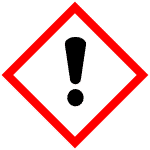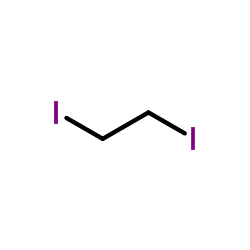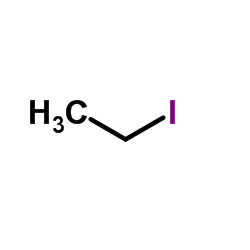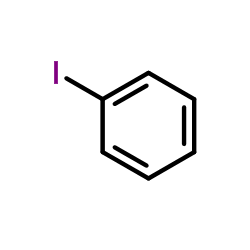无水碘化镧, 99.00,Lanthanum(III) iodide
产品编号:西域试剂-WR365581| CAS NO:13813-22-4| MDL NO:MFCD00049470| 分子式:I3La| 分子量:519.62
本网站销售的所有产品仅用于工业应用或者科学研究等非医疗目的,不可用于人类或动物的临床诊断或者治疗,非药用,非食用,
| 英文名称 | Lanthanum(III) iodide |
|---|---|
| CAS编号 | 13813-22-4 |
| 产品熔点 | 772ºC(lit.) |
| 产品密度 | 5.63 g/mL at 25 °C(lit.) |
| 精确质量 | 519.62000 |
| LogP | 2.65710 |
| 外观性状 | beads |
| 稳定性 | 常温常压下稳定 避免的物料 水分/潮湿 光 |
| 储存条件 | 常温密闭,阴凉通风干燥惰性气体下 |
相关文档
化学品安全说明书(MSDS)
下载MSDS质检证书(COA)
相关产品
| 符号 |

GHS07 |
|---|---|
| 信号词 | Warning |
| 危害声明 | H315-H319-H335 |
| 警示性声明 | P261-P305 + P351 + P338 |
| 个人防护装备 | dust mask type N95 (US);Eyeshields;Gloves |
| 危害码 (欧洲) | Xi: Irritant; |
| 风险声明 (欧洲) | R36/37/38 |
| 安全声明 (欧洲) | 26 |
| 危险品运输编码 | NONH for all modes of transport |
| WGK德国 | 3 |
|
Section 1: Product Identification Chemical Name:Lanthanum (III) iodide, anhydrous (99.9%-La) (REO) CAS Registry Number:13813-22-4 Formula:LaI3 EINECS Number:237-465-6 Chemical Family:metal halide Synonym:Lanthanum triiodide
Section 2: Composition and Information on Ingredients IngredientCAS NumberPercentACGIH (TWA)OSHA (PEL) Title Compound13813-22-4100%no datano data Section 3: Hazards Identification Irritating to skin, eyes and respiratory tract. May be harmful if swallowed. Prolonged exposure may produce a Emergency Overview: mild toxic syndrome known as iodism. Primary Routes of Exposure:Contact with skin and eyes. Inhalation of dust. Eye Contact:Contact with eyes causes irritation. May cause redness and pain. Skin Contact:Causes irritation to skin. Symptoms include redness, itching, and pain, pimples, boils, hives and blisters. Inhalation:Causes irritation to the respiratory tract. Symptoms may include coughing and shortness of breath. Ingestion:Large oral doses may cause irritation to the gastrointestinal tract Acute Health Affects:Irritating to skin, eyes and respiratory tract. Chronic ingestion of iodides may produce iodism. Symptoms include skin rash, running nose, headache and Chronic Health Affects: irritation of mucous membranes. NTP:No IARC:No OSHA:No SECTION 4: First Aid Measures Immediately flush the eyes with copious amounts of water for at least 10-15 minutes. A victim may need Eye Exposure: assistance in keeping their eye lids open. Get immediate medical attention. Wash the affected area with water. Remove contaminated clothes if necessary. Seek medical assistance if Skin Exposure: irritation persists. Remove the victim to fresh air. Closely monitor the victim for signs of respiratory problems, such as difficulty Inhalation: in breathing, coughing, wheezing, or pain. In such cases seek immediate medical assistance. Seek medical attention immediately. Keep the victim calm. Give the victim water (only if conscious). Induce Ingestion: vomiting only if directed by medical personnel. SECTION 5: Fire Fighting Measures Flash Point:not applicable Autoignition Temperature:none Explosion Limits:none Extinguishing Medium:None. Material is non-flammable. Special Fire Fighting Procedures:No special fire fighting procedures required. Hazardous Combustion andnone Decomposion Products: Unusual Fire or Explosion Hazards: No unusual fire or explosion hazards. SECTION 6: Accidental Release Measures To avoid raising dust, small spills may be mixed with diatomaceous earth, sand, vermiculite or other suitable Spill and Leak Procedures: inert material and swept up. SECTION 7: Handling and Storage Store solid in a tightly sealed container away from moisture. Handle under a dry atmosphere of air or nitrogen. Handling and Storage: Prolonged exposure to the atmosphere may degrade the product. SECTION 8: Exposure Controls and Personal Protection Eye Protection:Always wear approved safety glasses when handling a chemical substance in the laboratory. Skin Protection:Wear protective clothing and gloves. Consult with glove manufacturer to determine the proper type of glove. Ventilation:Material may form a fine dust. If possible, handle the material in an efficient fume hood. If in form of fine dust and ventilation is not available a respirator should be worn. The use of respirators Respirator: requires a Respirator Protection Program to be in compliance with 29 CFR 1910.134. Ventilation:Material may form a fine dust. If possible, handle the material in an efficient fume hood. Additional Protection:No additional protection required. SECTION 9: Physical and Chemical Properties Color and Form:off-white to red pwdr. Molecular Weight:519.62 Melting Point:772° Boiling Point:no data Vapor Pressure:no data Specific Gravity:5.63 Odor:none Solubility in Water:very soluble SECTION 10: Stability and Reactivity Stability:hygroscopic Hazardous Polymerization:no hazardous polymerization Conditions to Avoid:contact with moisture Incompatibility:halogens and oxidizing agents Decomposition Products:none SECTION 11: Toxicological Information RTECS Data:No information available in the RTECS files. Carcinogenic Effects:no data Mutagenic Effects:no data Tetratogenic Effects:no data SECTION 12: Ecological Information Ecological Information:No information available SECTION 13: Disposal Considerations Disposal:Dispose of according to local, state and federal regulations. SECTION 14: Transportation Shipping Name (CFR):Non-hazardous Hazard Class (CFR):NA Additional Hazard Class (CFR):NA Packaging Group (CFR):NA UN ID Number (CFR):NA Shipping Name (IATA):Non-hazardous Hazard Class (IATA):NA Additional Hazard Class (IATA):NA Packaging Group (IATA):NA UN ID Number (IATA):NA SECTION 15: Regulatory Information TSCA:Listed in the TSCA inventory. SARA (Title 313):Title compound not listed. Second Ingredient:none SECTION 16 - ADDITIONAL INFORMATION N/A |
|
~% 
13813-22-4 |
| 文献:Inorganica Chimica Acta, , vol. 144, p. 143 - 146 |
|
~% 
13813-22-4 |
| 文献:Inorganica Chimica Acta, , vol. 144, p. 143 - 146 |
|
~% 
13813-22-4 |
| 文献:Journal of the Chemical Society [Section] A: Inorganic, Physical, Theoretical, , p. 1931 - 1934 Sc: MVol.D6, 1.2, page 147 - 148 |
|
~% 
13813-22-4 |
| 文献:Journal of the Chemical Society [Section] A: Inorganic, Physical, Theoretical, , p. 1931 - 1934 Sc: MVol.D6, 1.2, page 147 - 148 |













 浙公网安备 33010802013016号
浙公网安备 33010802013016号